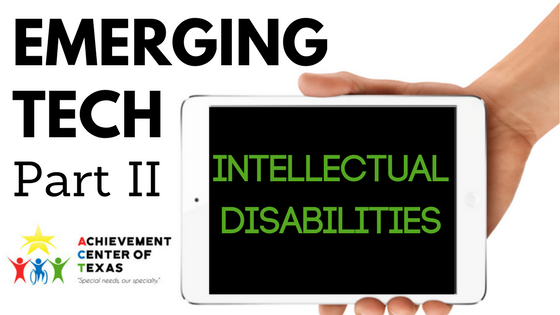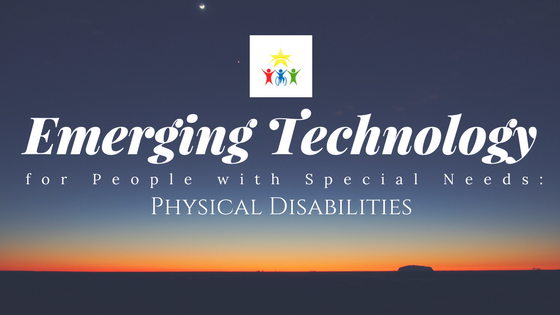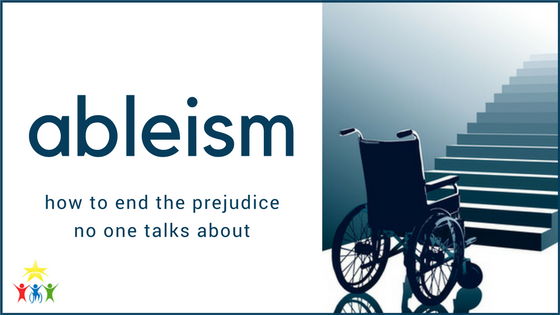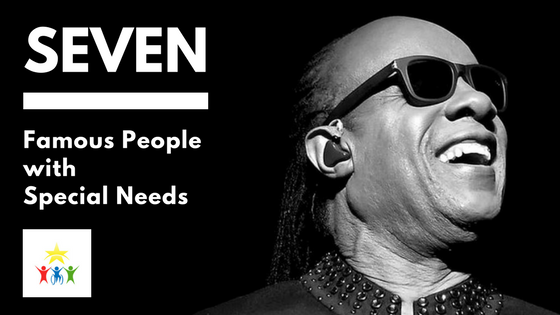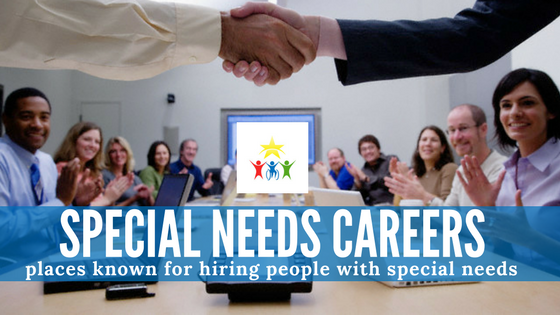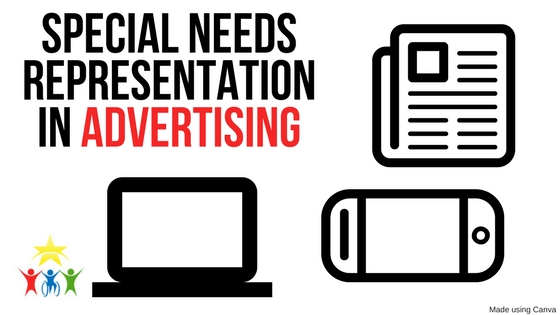7 Myths about People with Special Needs
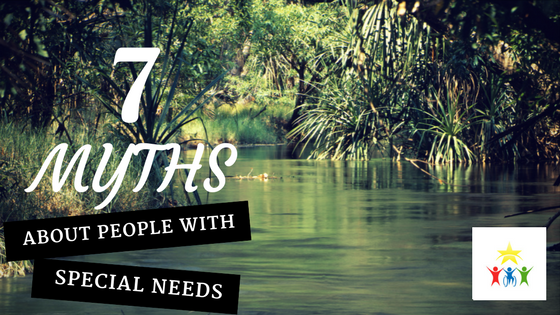
We’ve all grown up listening to people talk about stereotypes, myths and wives-tales regarding anything and everything we could possibly imagine. There have been countless television shows, movies and books written about this very thing as well.
Why is it we feel the need to confine our day-to-day experiences with the world around us in short snippets of judgement? It seems to just be human nature.
One of the biggest things I can recall growing up hearing about are stories told about people with disabilities and special needs. Someone always had something to say (or repeated from an older sibling/family member) and it was almost always negative or derogatory.
When you get older you start to understand just how wrong that was and how the world is a lot less simple than “this is black” and “this is white.” So here are some common myths that tend to come up in conversations surround people with special needs:
(Hint/Spoiler Alert, they are all pretty much incorrect)
1. You Can Always Tell When Someone Has Special Needs
Very false.
Not all needs are visible physically and not all needs are detectable through conversation. Yes, sometimes you will be able to see a physical wheelchair and understand that means someone could be immobile, or maybe even a cochlear implant and understand that someone may be hearing impaired, but you can never assume.
Imagine going through life and having people point out something you think is completely normal and just you being you, and someone telling you you’re “different” (most likely with a negative connotation) from everyone else and everyone knows it. Not cool.
You never know what someone has going on!
2. You Should Never Ask Questions About Someone’s Special Needs
This is also false.
To an extent.
Just like I’m sure you want to be loved, cared for and understood as a human, so do people with special needs. Ask questions, engage in conversation that helps educate you on how you could
- Assist them better as a friend
- Understand what life looks like for them
- See a new perspective
- Learn all about what makes them unique!
There are some needs that are more widely known so you may not feel the need to ask, and some people may even be uncomfortable with answering your questions. That’s okay!
We’re all allowed our right to privacy but as long as you’re asking the right questions and the seeking to know the person better, not just try to get information from them, you can’t go wrong.
3. People with special needs live differently than people without special needs
In a sense of maybe having a few more doctor visits, this can be true.
But, that is such a small scale event to put that under a blanket term of “they live differently.”
In actuality, we ALL live differently than the person standing next to us; some have jobs, some don’t, some stay at home and take care of children, some don’t have children, some people spend all their money on food and clothes and some people spend all their money on other people!
It’s narrow-minded to believe we can fit this one portion of the population into their own box.
Technology has helped us provide tools to make life easier for those with special needs just the same as it has provided people without them with a higher quality of life as well.
4. People with disabilities want to be “normal”
Honestly, it’s a toss up for most people in the world going back and forth between wanting to stand out and wanting to blend in.
Normal is an overrated term used for a general idea of societal standards.
No one is really “normal,” we all interact with one another in new and exciting ways.
Normal can be synonymous with “boring” and no one wants to be that!
5. People with special needs are given unfair advantages
There’s a spectrum of privileges we are all born with and sometimes it’s hard to understand your own since you don’t have an outsider’s point of view.
This makes it seem as if people who need a little boost to get where we started are being given an unfair advantage and that’s just silly!
Our aim is to make life an even playing field so that we’re all able to start from the same point and go from there on our own. Sometimes people need some extra time or some extra steps to get to the starting line.
Don’t let yourself buy into this faulty way of thinking. It’s a shame to waste any negativity on people who offer so much!
6. People with Special Needs Won’t be Able to Complete a Task Without Assistance
This myth tends to circulate more around a work environment and it can turn ugly really fast.
Any person hired for a job was trained the same as you and knows what’s to be expected.
It’s important to squash these ideas and misconceptions early on before they become an initial thought or habit whenever you arrive at work or even school.
These kinds of opinions become a shared mindset amongst people in close proximity to one another and it can be toxic to not only your workspace, school space but even to the person in question.
I won’t preach about being nice to everyone you meet, but it does help to be conscious of when you are causing them mental harm or ostracizing them more.
7. People with Special Needs That are Able to Live on Their Own are Heroes
Just like you’re not a hero for cooking your own meal after moving out of your parents house, someone not needing around the clock care doesn’t make them heroic. It makes them just like you!
Some people don’t move out of their parent’s house until their 25, some even older, while some are out by the age of 15. Everyone’s needs are different and we all rely on people for different facets of our life.
True, some people with special needs will require the care of a professional their entire life, but that doesn’t mean they are less of a person because of it or that someone who doesn’t share that same life is more of a person in spite of it.
These myths and ideas are so harmful to us as a society and those who deal with this lifestyle on a daily basis. It starts with one person standing up and saying these things are false and educating everyone about what having a disability or special needs really means.
We can make light out of everything in life without doing it in a way that has a severe impact on someone’s well-being.
Volunteer with the Achievement Center of Texas
We love to educate people ourselves here at the Achievement Center and are always looking for volunteers who share the same passion as we do! Volunteer with us if you want to opportunity to learn more about how to be on the front line of dispelling these rumors by speaking from experience.
Donate and Help Make a Difference
As a 501(c)(3) nonprofit organization, the Achievement Center of Texas is here to help our students grow and develop. You too can assist our students learn to reach a higher level of independence by donating today! We accept donated items as well. Even a small donation can help make a big difference. So if you can, click the button below to donate today.
About the Author
Allison Vickers is a recent graduate of UNT and has an affinity for all things related to dogs. A data analyst by day, writer by night, Allison thrives off of giving back to the communities she is a part of. Though her writing skills may be slightly above sub-par, she loves learning and educating people about how to love a little harder.

